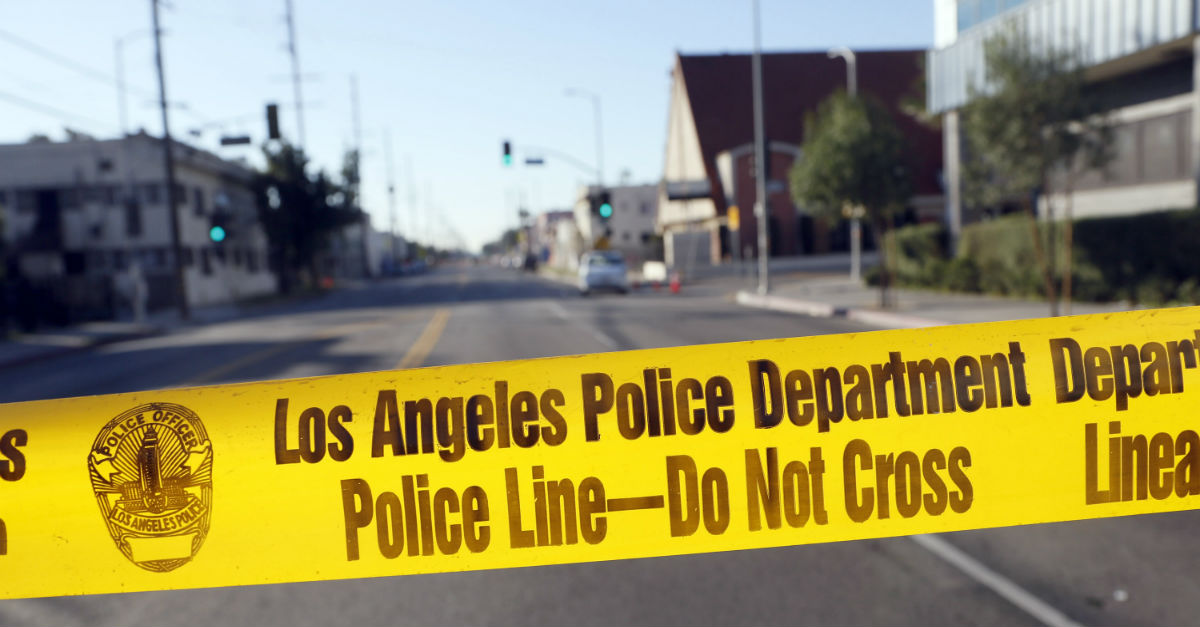In honor of Police Week and the men and women who risk their lives to protect us every day, Rare reached out to a few police officers to learn a little more about the job and get a peek behind-the-scenes of the duties of an officer. Our first interview was with Sergeant Richter of the Los Angeles Police Department; he has been with the LAPD for almost 20 years.
Videos by Rare
Rare: What’s the most rewarding part of your job?
Sgt. Richter: I think you initially come on the department because you really want to help people. And I think one of the most rewarding aspects of our job is when you actually see something get improved. I can tell you from working in Los Angeles, a number of the neighborhoods that I’ve been assigned to have actually become a better place to live and to work. To be part of that is rewarding; but also, the fact that you’re changing people’s lives — both economically and from a safety standpoint.
Rare: Can you tell us about the most frightening experience you’ve had?
Sgt. Richter: In my 20 years, it’s probably not much different from most people who have spent time in patrol. But I can tell you that I have a recurring nightmare about a stabbing victim who died in front of me. And this was at least 14 or 15 years ago. And he still visits me in my dreams; about every two years, he’ll pop up for some reason and whisper the name of the person who stabbed him to death. And I particularly remember him because he was covered in blood — including his beard — and I’ll have a nightmare where I see him and he whispers the name of the individual who stabbed him. And that’s a little disturbing, just something that bothers me every once in a while.
Rare: What’s the biggest drag?
Sgt. Richter: We’re seeing that there’s an enormous amount of scrutiny that’s placed on police in general, and I would say that for the most part the vast majority of police officers are really doing the right thing as far as their profession, and have the right intentions. In most cases, when police are actually doing what’s expected of them — because of the age that we live in with video and social media — a number of intentions are misconstrued. It becomes very frustrating for a police officer when you’re being second-guessed. I can tell you it’s a lot different if you’re going to walk in our shoes and criticize our job. I would like to see a lot of people give it a try and see what they would do.
Rare: What’s the key to a great cop mustache?
Sgt. Richter: I can tell you from our department manual that you’re not allowed to go below the mouth line. So I can’t tell you that a handlebar mustache — which we might associate with the police of yesteryear — is going to fly in LAPD, because it won’t. Most of the mustaches that we see in LAPD that we consider to be appropriate are quite large. A lot of people even dye them, and they appear to be quite untrimmed.
RELATED: Police officers of the world, you have the right to keep dancing
Rare: What makes a good partner?
Sgt. Richter: A sense of humor and a symbiotic relationship in patrol. For me, having a partner that speaks Spanish and is female is ideal, because you have all the aspects of working with a variety of radio calls. The female police officers that I’ve worked with have been excellent; they immediately downgrade an emotional situation when they get out of the car. And, for some reason, they’re not a physical threat, even though they can take care of themselves. Having someone who speaks Spanish is really a plus in Los Angeles. You really want to have somebody you’re going to laugh with. You’re in a car for 12 to 16 hours, and you deal with so many issues.
Rare: What’s your favorite police movie?
Sgt. Richter: I would have to say “Colors” with Robert Duvall. I think it’s the most accurate. “End of Watch” is really good until the end, which was very unrealistic. There’s this giant shoot-out where everyone in Los Angeles takes a shot at them. It typically doesn’t really happen like that in any police department. But in “End of Watch,” when they’re in the car or roll call or at the station, it was dead-on the way that they interact with each other. They did their homework.
Rare: What’s the most ridiculous excuse you’ve heard to get out of a speeding ticket?
Sgt. Richter: There was a bee in the car […] it was just too good.



